Tirbespiye, officially named Al-Qahtaniyah (Arabic: القحطانية; Kurdish: Tirbespî; Syriac: ܩܒܪ̈ܐ ܚܘܪ̈ܐ, translit. Qabre Ḥewore), formerly Qubour al-Bid, is a small city in the Qamişlo Canton, in the Jazira Region of the Democratic Federation of Northern Syria.
Tirbespiye is an ancient city. It was historically an Assyrian city.
A population of 16,946 was recorded in the 2004 census.

Days after Turkey’s invasion of Rojava, Kurdish politician Hevrin Khalaf was assassinated. In this interview from 2018 she shares her thoughts on the Rojava revolution.
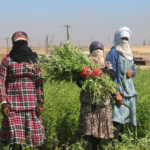
About 100 women, who participate in the Demsal Project launched by the Kongra Star Economy Committee in the town of Tirbespiyê, provide agricultural and dairy products to the people of the town.
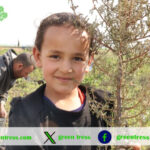
On 22 February 2024, the Green Tress Environmental Association distributed tree seedlings to the schools of Tirbesbiye city as part of the project 'Environmental School – Environmental Community', and in memory of the martyr artist Mansour Karimian. The seeds were planted two years ago and have been cared for and watered since then, in coordination between the workers in the Odeh field and the Association.
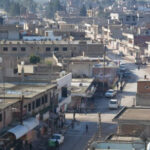
The communes in Tirbespiyê work together with the municipalities to solve the problems of citizens such as water, electricity and agriculture.
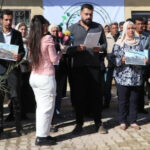
Cizîr Canton Ecology Board stated that the attacks by the occupying Turkish state has caused great damage to the ecology in North-East Syria, calling on the international community to take action against this ecological destruction.

While Naide Zengin was working on building sites in England she had wished to do something for Rojava, so she prepared a greenhouse project. “Finding my country and putting my work into it allowed me to be reborn. In this rebirth there is hope for a brand new world and a future. I have chosen the place I want to die”, she says.
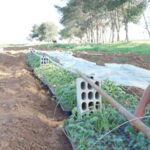
Under the Baath regime, Rojava had to provide wheat for the whole of Syria. And it had to export oil in order to make foreign currency for Syria. Nothing else.
And now? As long as there is war, this will determine the economy of Rojava. 70% of the budget is used for weapons, ammunition, logistics, and so on. That's $10,000 a month. Then the families of fallen fighters need to be supported if they no longer have an income. They are given land and they are accepted into cooperatives. There are also cooperatives being opened in craft and trade specifically for them. Finally, because of the embargo, petrol and wheat cannot be exported. And the prices for commodities like vegetables and textiles are climbing.
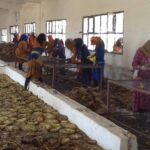
Women are the most dynamic force in the economy. What’s special in Rojava is that every day women are organising and taking control of new projects in areas ranging from agriculture to the textile industry. With the communal economy as their basis, the women are developing skills in order to produce according to the needs of the people. Their aim is to provide healthy nutrition and a contented life. They are showing that they can do this themselves.
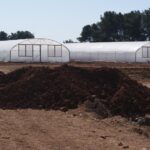
“If we don't give this to the society then we're going to be just like a company. Then we're not working for Rojava, we're working for ourselves.”
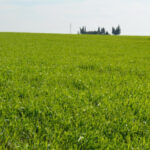
Agricultural cooperatives created by women in 8 villages in Qamishlo grow products such as wheat and barley. In a year with good rainfall, women aim for an important harvest.
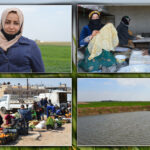
Six women’s cooperatives, agriculture and bakery cooperatives, have been started in Tirbê Spî, town of Qamishlo. 46 women make a living at these cooperatives.
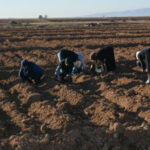
After the success of the winter vegetable growing project in its first year, the Women's Economy Co-operative, which aims to support the social economy and spread the idea of working together, grows vegetables this year as well.
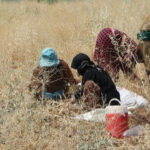
Five years ago, four women founded an agricultural cooperative in Tirbespiyê. Today, forty women work there and the cooperative covers a large part of the demand for vegetables in the Northern Syrian region.
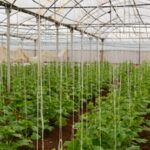
The cultivation of vegetable project in Tirbespiyê area contributes in fulfilling part of the region's need for seasonal vegetables, in addition to securing jobs for women.














